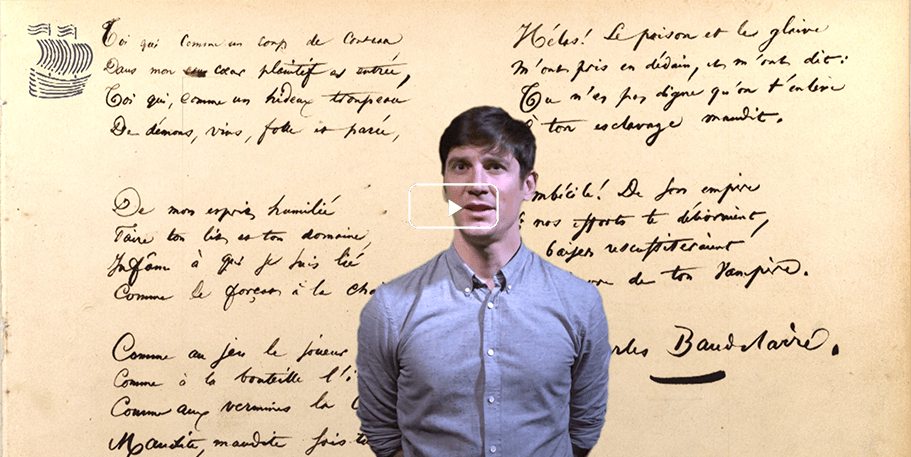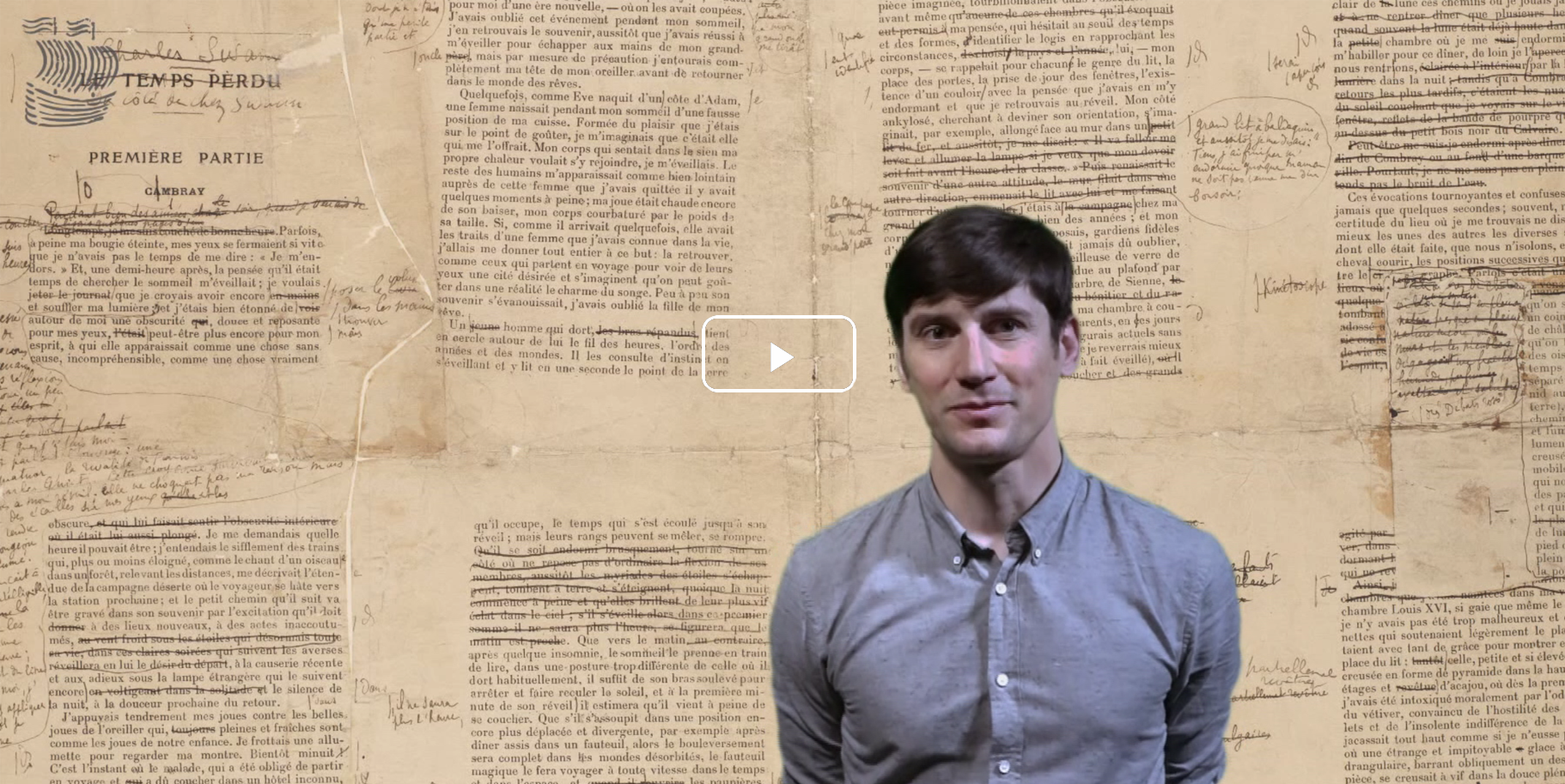French Autograph Manuscripts
The Bibliotheca Bodmeriana includes
nearly 500 French autograph manuscripts
from authors including Rimbaud, Marie Curie,
Flaubert, Proust and Mallarmé.
The modern autograph manuscript collection preserved at the Martin Bodmer Foundation includes roughly 1200 pieces, not including musical manuscripts and simple dedications of a book by its author. A majority of these texts are in German, but French literature is the second most-widely represented language. There are more than 500 French manuscripts written by their authors’ hand, ranging from the 16th to 20th centuries, ready to be shared with the public.
The opportunity to consult these documents has been limited until now to an exclusive few, mostly researchers specialising in a given author. These French manuscripts, now digitised by the Bodmer Lab, form the central focus of study in the autograph manuscript constellation. Many of these pieces represent the first known incarnation of the text they would become, others would remain entirely unknown; some are a single sheet of paper (a letter, a poem), others hundreds of pages (an entire novel or play). All are wholly unique.
These manuscripts are becoming available at a time when practices of reading are being renewed and revised to include not only the “definitive” (printed) version of a text, but also its successive steps of development, of its different “states.” Accordingly, we hope to renew approaches to these particular texts, which are just as much objects to be seen as they are to be read.
In this sense, our primary objective is not so much to offer an edition or a transcription of each manuscript, but to allow it to be viewed directly on the screen, to be explored.
All are invited to this textual immersion, made possible through the availability of high-quality images and catalogue of descriptive listings that accompany the document in question. These listings provide information about the context and physical detail of the documents, as in most catalogues, to which we have added, when possible, links to other incarnations of the text available online as well as to historical provenance of the manuscript. Thusly put in context and in network, the manuscript is primed to give over its secrets: such searches can sometimes set us on a journey that will lead across multiple centuries of history and through many different intermediaries, from the author’s own hand to that of Martin Bodmer.
Unlike a printed catalogue, and according to the guiding principles of this online project, the Bodmer Lab site will offer easily-accessible open content, structured to accommodate new information, new manuscript sources and new digitised editions as they appear online. Participatory collaboration has been the formula best suited to these goals. Accordingly, there are already more than 50 volunteers, drawn from the ranks of the Faculty of Letters at the University of Geneva, participating in this work-in-progress, whose very first results are now on display on the Bodmer Lab site. These first results will in turn carry on and grow through the discoveries and contributions yet to come.
Marc A. Kolakowski
Université de Lausanne
The Bodmer Lab, a Participatory Project
In the spirit of open collaboration which permeates the Bodmer Lab project, a call for contributions has been announced by the French Autograph Manuscripts Constellation, seeking collaborations with all the members of the Faculty of Letters. This “crowdsourcing” project seeks to produce descriptive catalogue notices for the author manuscripts held at the Martin Bodmer Foundation.
The Purchase of Stefan Zweig’s Collection
by Martin Bodmer
One March morning, 1936, the already-famous Zurich bibliophile Martin Bodmer received by post a catalogue from Vienna detailing the sale of an extraordinary collection of autograph German manuscripts. Though he’d been largely uninterested in authorial manuscripts, he decided to purchase virtually all of the lots which had been individually and meticulously described in the brochure.



